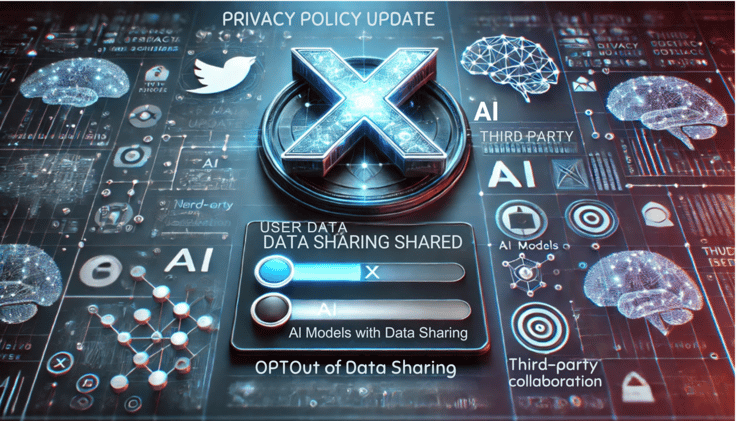In the age of artificial intelligence (AI), life has taken on a whole new meaning. The past few weeks have witnessed a breathtaking pace of AI advancements, with one groundbreaking innovation following another at an unprecedented speed. For anyone interested in technology, it’s an electrifying time to be alive. However, this rapid progress also calls for careful navigation and consideration.
Open Source AI: Power to the People
One of the most striking trends in recent AI developments is the surge in open source projects. Take HuggingChat, an open-source alternative to OpenAI’s ChatGPT, or ResearchGPT that provides an interface to enable a conversation with a research paper. What’s remarkable about these tools is not just their sophistication but their accessibility. AI, once the exclusive domain of tech giants, is being democratized, opening up a realm of opportunities for tech enthusiasts, startups, and smaller companies.
This shift in power dynamics has the potential to spark an explosion of grassroots innovation and drive the next wave of AI advancements. By leveraging open source projects, developers can collaborate, contribute, and innovate at a pace that was previously unimaginable. For more insights into open source AI, check out this comprehensive guide on starting, contributing to, or launching an open source project.
The Benefits of Open Source AI
- Democratization of AI: Open source projects make AI accessible to a wider audience, fostering collaboration and innovation.
- Accelerated development: With the power of collective contribution, open source projects can move at a faster pace than proprietary solutions.
- Customization and flexibility: Open source AI allows developers to tailor solutions to their specific needs.
AI Integration: The New Normal
AI is no longer just for techies; it’s seeping into every nook and cranny of our lives. Recent launches by Grammarly, Yelp, and Snapchat demonstrate how AI is becoming as commonplace as smartphones. From enhancing writing to predicting preferences, AI is transforming the way we live, work, and interact.
However, this seamless integration also raises challenges related to transparency, user consent, and ethical considerations. As evident from Snapchat’s recent backlash over its ‘My AI’ feature, it’s crucial to address these concerns proactively.
The Challenges of AI Integration
- Transparency: Users have the right to know how their data is being used and what AI-driven decisions are being made.
- User consent: AI systems must be designed with user consent in mind, ensuring that individuals understand the implications of AI-driven decisions.
- Ethical considerations: As AI becomes more deeply integrated into our lives, questions of bias, fairness, and accountability will become increasingly paramount.
AI and Hardware: An Unexpected Union
The influence of AI is also stretching into uncharted territories. Flux’s Copilot, an AI-driven hardware design assistant, is a thought-provoking example of AI’s transformative power. This development hints at the vast untapped potential of AI in areas traditionally untouched by it, like hardware design.
The Future of AI and Hardware
- New applications: AI can be applied to various industries, from healthcare to finance, and beyond.
- Increased efficiency: AI-driven hardware design assistants can streamline processes, reducing costs and improving productivity.
- Enhanced innovation: By leveraging AI in hardware design, developers can create innovative solutions that were previously unimaginable.
‘The AI Hot 75’ and Beyond: Future-Proofing AI
The ‘AI Hot 75’ list by NFX offers a fascinating peek into the future of AI. These early-stage generative AI companies hold the promise of driving the next phase of AI innovation. However, as we get enamored by their potential, it’s critical to remember that with great power comes great responsibility.
The Responsibility of AI Innovators
- Ethical considerations: As AI innovators, it’s essential to consider the implications of our creations on society.
- Transparency and accountability: We must be transparent about our methods and accountable for our actions.
- Collaboration and cooperation: By working together, we can ensure that AI is developed with a sense of responsibility and purpose.
The Ethical Imperative in AI’s Brave New World
The speed of AI advancements is both thrilling and unnerving. It’s a reminder of our collective responsibility to ensure that these technologies are used ethically and responsibly. The backlash over Snapchat’s ‘My AI’ feature offers a crucial lesson in this regard.
The Importance of Ethical AI
- Transparency: Users have the right to know how their data is being used and what AI-driven decisions are being made.
- User consent: AI systems must be designed with user consent in mind, ensuring that individuals understand the implications of AI-driven decisions.
- Accountability: As AI becomes more deeply integrated into our lives, questions of bias, fairness, and accountability will become increasingly paramount.
Conclusion
The age of artificial intelligence is upon us. With its unprecedented speed and transformative power, AI is changing the world at an alarming rate. However, this rapid progress also calls for careful navigation and consideration.
By embracing open source AI, integrating AI into our lives responsibly, and future-proofing AI innovation, we can harness its potential to create a better future for all. As we navigate this brave new world, it’s essential to remember that with great power comes great responsibility.



